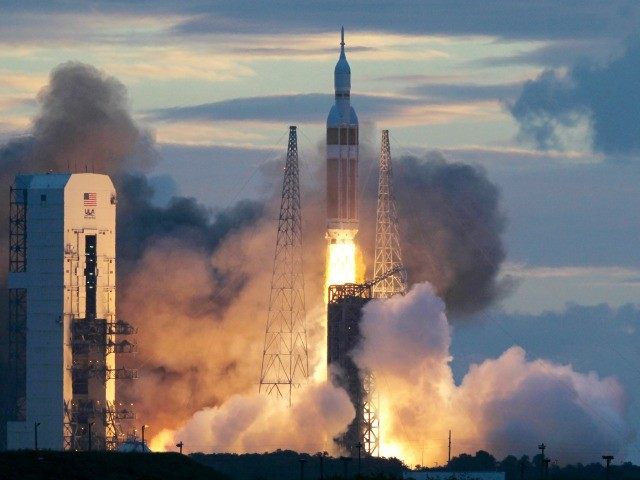As chairman of the Senate Space, Science, and Competitiveness Subcommittee, Texas Republican Ted Cruz is on a mission — to get NASA back on course regarding it’s original focus, space, and less on what many view as pseudo-science: global warming research.
According to this National Journal report, “The Republican lawmaker argues that the Obama administration is wrongfully neglecting the country’s space exploration operations—like potential missions to Mars and beyond—in favor of global-warming research.”
Now, Cruz is asking NASA’s administrator, Charles Bolden, if he agrees.
“I’d like to start by asking a general question,” said Cruz on Thursday during a subcommittee hearing on the president’s $18.5 billion budget request for NASA for fiscal 2016, which allocates considerable funding for Earth- and ocean-science projects. “In your judgment, what is the core mission of NASA?”
Bolden said he’d been contemplating that mission over the past few days, and had read over the National Aeronautics and Space Act of 1958, which created the agency. “Our core mission from the very beginning has been to investigate, explore space and the Earth environment, and to help us make this place a better place,” he said, adding that the study of aeronautics is important as well.
Cruz didn’t seem pleased with the “Earth environment” part of Bolden’s answer. “Almost any American would agree that the core function of NASA is to explore space,” he said. “That’s what inspires little boys and little girls across this country … and you know that I am concerned that NASA in the current environment has lost its full focus on that core mission.”
Cruz isn’t pleased that Earth sciences funding is up 41% since 2009, “while funding for exploration and space operations” is down 7.6%. Cruz considers the latter “the core function of NASA,” per the same report.
“In my judgment, this does not represent a fair or appropriate allocation of resources, that it is shifting resources away from the core functions of NASA to other functions,” Cruz said. “Do you share that assessment?”
Bolden, who decides how to allocate NASA’s annual budget, did not. That dip in space exploration funding? That was kind of the whole point. “Mr. Chairman, I am very interested in your chart,” he said. “I will say one thing—it is interesting to note that there is a decrease in exploration and human spaceflight when, in fact, that was somewhat intentional because we were trying to get the cost of exploration down as we reach farther out into the solar system.”
Bolden said the now-defunct space shuttles cost NASA $2 billion a year to maintain whether they flew or not. Today, NASA has a $6.6 billion contract with private companies Boeing and SpaceX that will provide for 16 human spaceflights over a span of three to four years.
“So I think the decrease is actually a little bit of what we’re trying to do to get the cost of flying humans into space down,” he told Cruz. “That’s what’s driving the market, is reducing launch costs.”

COMMENTS
Please let us know if you're having issues with commenting.